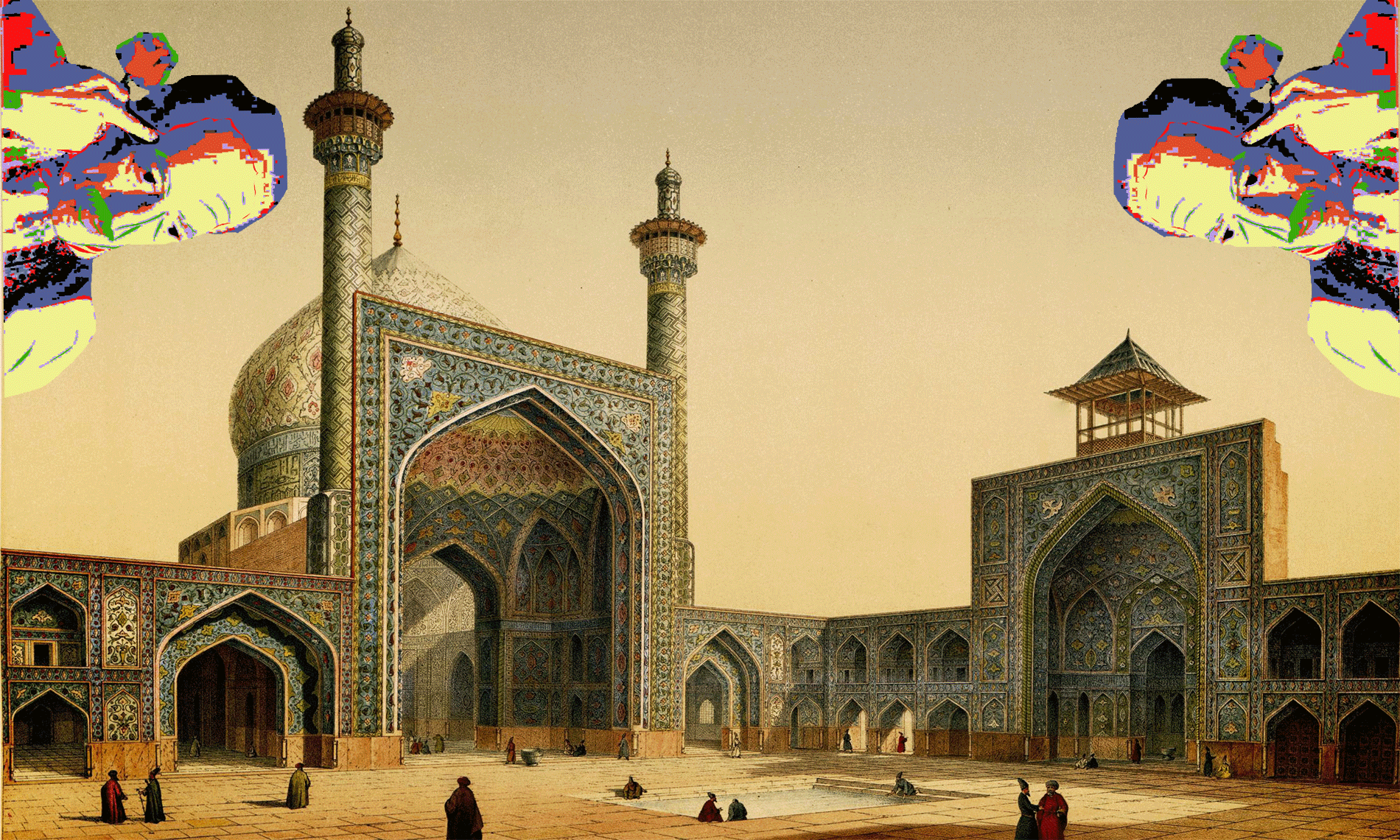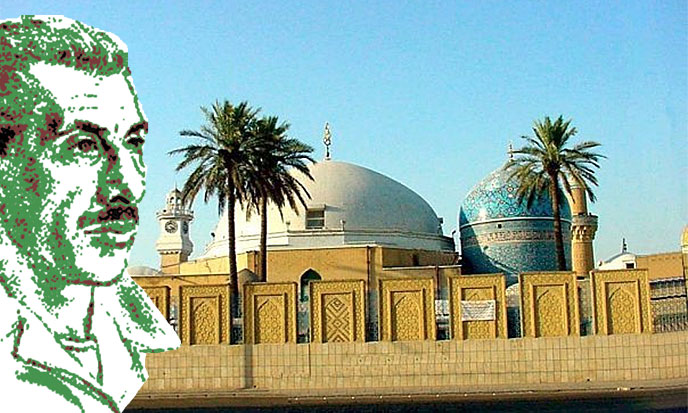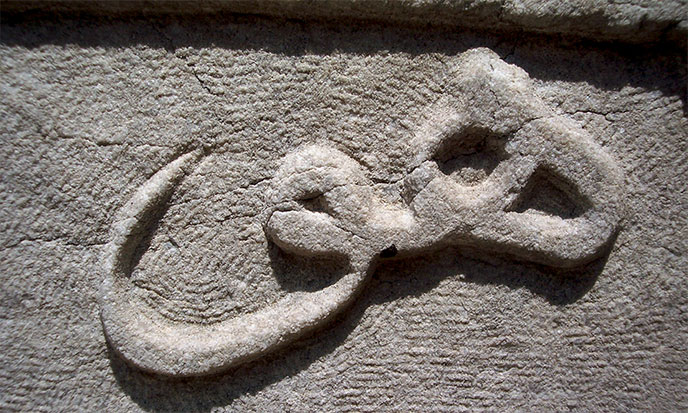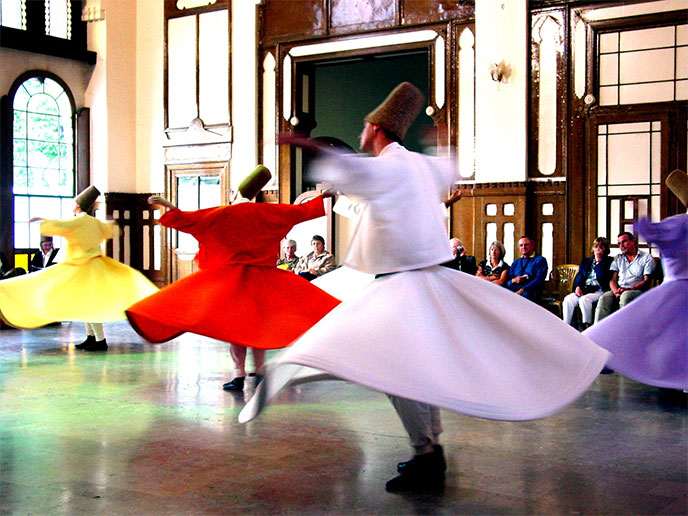
In Sufi teaching, each student receives advices and lessons according to his own case and his degree of development. The Sufi tales, or teaching stories, constitute the keystone of this deep spirituality.
Mahmud did not know how to live his life. He took advice from a Sufi sage, “Go into the forest, Mahmoud. Learn from the wild that will give you a life lesson” Mahmoud obeyed. In a bush, a fox was laying, belly full and well. Yet he has no legs. Mahmoud was puzzled. “How does that fox manage to eat? How could it be so healthy?” Willing to understand, he kept watching silently. After a while, Mahmud saw a bear killing a doe, noisily devours before abandoning the carcass.
Then the fox crept out of the bush, up to the prey for nibbling on leftovers. “Victory!” triumphs Mahmoud, “This is a lesson very easy to understand!” Sure of his way, he left the woods, determined to take advantage of this excellent life lesson. Two years later, a hungry tramp goes to the wise Sufi. Under filthy rags, in the emaciated, the Sufi recognizes Mahmoud who starts to cry: “Your advice did not help me, nature has given me a bad lesson,” said Mahmoud.
“I went into the forest, I saw a fox that had no legs, yet he lacked for nothing. I too was sitting doing nothing. Like the fox, I waited and waited, but nothing good has happened, and now I am destitute” The sage nodded and answered: “The lesson was perfect, but the student was not. Since you have legs, why did you imitate the fox? Your model is the bear. You got to help yourself and help the weak. This was the lesson you missed.” (source)after Idries Shah
When you’ll give up hope, I’ll teach you will.
The Sufi teaching makes great use of tales, Idries Shah calls them lessons-stories. He described the particular act they play in student teachings: “The Sufi tale is constructed to present a model, a drawing or a series of relationships to the reader’s mind. Once one is familiar with this structure, he can understand concepts and experiences with a similar structure but operating at a higher level of perception. We can compare this to the relationship between plan and finished product.
This method can provide the illumination to the individual according to his ability to understand. It can also be a very essential part of the preparatory exercises of the student. It must go beyond appearances without any prejudice to its ability to both understand and appreciate the humor, and other external features of the history. (…) In Sufi groups, it is customary to soak stories whose study is proposed, so that their multiple meanings are revealed to students when it is useful to their development.
This second phase sometimes requires the intervention of a master teacher, he alone knows the “moment” and “place” of this development. This is why the Sufi tales are said to “imprison a secret without price” which is “liberated by the power of a master teacher.”
Analyze these stories is to risk depriving their instrumental function: disassemble the parts of a hammer, it ceases at the moment to be a hammer. From immemorial time, stories have been the bearers of knowledge and the tools of understanding”… (source)Idries Shah, Learning To Learn

Idries Shah or Idris Shah, born Sayyid Idris al-Hashimi, author and poet, Sufi master and ‘a peacock of his time’, was recognized as “the most important researcher in adapting the classical spiritual thought to the modern world.” (source)Wikipedia His books have sold worldwide to over 15 million copies in 12 languages. Among them are: Learning to learn, Caravan of Dreams, Mulla Nasrudin, Tales of initiation. His writings and open design of Sufism have greatly increased the knowledge of Sufism in Europe.
Idris Shah believed that Sufism was preceded Islam and did not depend solely on the Koran, but its source, its significance and relevance were universal. He supported the idea that spiritual teachings should always be presented in forms and in terms familiar to the community where they must took root. He thought people should give students a work according to their individual abilities and reject the systems that apply the same exercises to everyone.
Throughout his life, he used humorI try to imitate him with very good results.
How do I leave this subject without telling a last Sufi story, that of elephant meat, it contains a “priceless secret”.

A dhow was caught in a violent storm while crossing the Indian Ocean. Its mast broken by the fury of the elements, the rudder broken, the dhow drifted in distress. The crew implored Allah. “For our lives, my friends, let each one wish, said the captain. If Allah gives us alive, we will keep this promise, whatever it costs us”.
They all understood that the wish must equalize the gift of Allah. And everyone took a commitment that, for him, represented a great sacrifice. “As for me,” said the latter, I … I promise never to eat meat of an elephant!” Amazement of the sailors: “We all made a painful vow while you …”
The latter replied “I had prepared a severe promise, as you all. But when I wanted to tell it, this wish has come. I must respect it.”
Against all odds, when a rogue wave is going to sink, the surf pushes on a strike. They are saved. But behind the empty beach, a jungle terrain prevents them from exploring the place. “God draws us to a threat to plunge us into another, they groan. We shall die of hunger on this desert island!” At that moment a fearful beast out of the jungle is an elephant. He is quickly captured, slaughtered, butchered, cooked and eaten. They were all delighted to escape hunger. All except one, who had promised not to eat elephant.
While, sated and satisfied, his companions roar, he turns on the cold sand. A great trumpeting, a din of broken branches, the mother elephant arose from the depths of the jungle. Quick, she sniffed the carcass of his son who still brown over the coals, then sniffed each sailor, before crushing their heads. Then came the turn of the hungry, who felt nothing, because he had refused the meat of an elephant. In a delicate tube, the beast took hold of him, placed it on his back and crept into the jungle.
Then they reached the cultivated fields, and the elephant deposed man by his people.

Our prison is a kingdom
with ignored wealth:
instant, brightness, eternity…
The fool thinks himself wise, the wise man knows himself fool.



